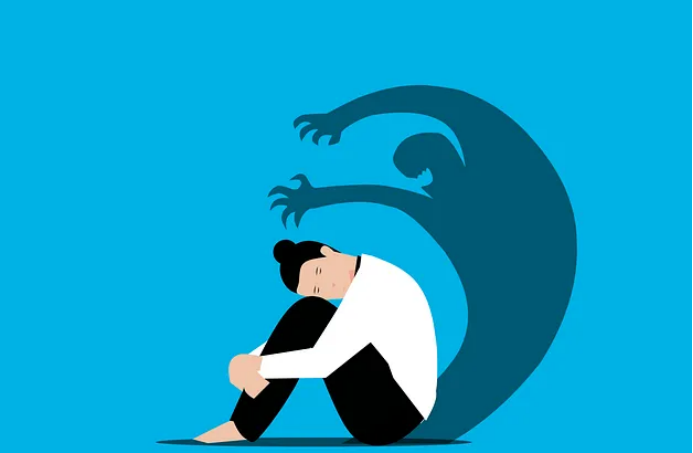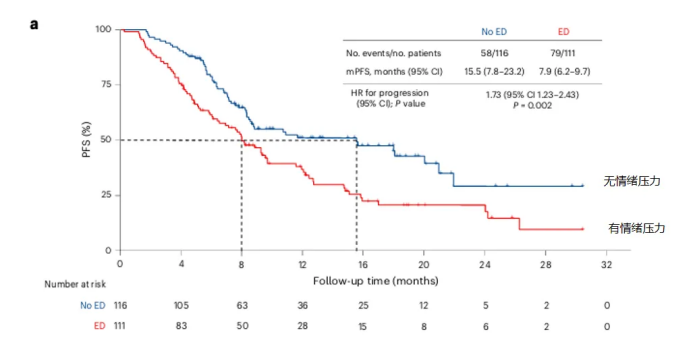Keep this cancer-fighting 'prescription' and achieve better cancer-fighting results!
We often say 'illness is born from the mind.' When facing the threat of cancer, patients often experience a series of complex psychological reactions, among which anxiety and depression are the most common. These emotional responses not only affect the patient's quality of life but may also have an adverse impact on the treatment outcome. Therefore, recognizing the prevalence of these psychological states and their potential negative effects is crucial to improving the overall effectiveness of cancer treatment.

图片来源:pixabay
Can negative emotions really affect cancer treatment outcomes?
Scientific research has confirmed that long-term negative emotional states, such as depression, anxiety, and anger, can increase the risk of developing cancer and also have a negative impact on the treatment outcomes for cancer patients. When people face emotional stress, it may activate the hypothalamic-pituitary-adrenal axis and the sympathetic nervous system, releasing hormones like corticosteroids and adrenaline. These hormones have an immunosuppressive effect, which inhibits the function of immune cells, weakening the body’s ability to monitor and eliminate cancer cells.
For example, in lung cancer, a study published in Nature Medicine showed a close relationship between emotional stress and the effectiveness of immunotherapy for lung cancer. Among advanced non-small cell lung cancer patients receiving first-line immunotherapy, those experiencing emotional stress had a shorter median progression-free survival, lower objective response rates, and higher risks of disease-related death. This indicates that emotional stress not only affects the patient's quality of life but can also directly lead to resistance to lung cancer immunotherapy, reducing the effectiveness of treatment.

Patients without emotional stress have a longer progression-free survival
Therefore, the saying “illness originates from the mind” is not without reason. A good mental state has a positive impact on health, helping to reduce the risk of illness and aiding in recovery and prognosis.
Mr. Zhao's Anti-Cancer Story: From Giving Up to Regaining Confidence
Mr. Zhao is a patient in the Digestive Oncology Department of Beijing GoBroad Hospital. Eight months ago, he was diagnosed with stage IV colon cancer, with bone metastasis. During his first consultation, Mr. Zhao was in a depressed mood and even considered giving up treatment. However, with the professional and patient support of Dr. Lu Ming and his team, Mr. Zhao gradually regained his confidence.
Throughout the treatment process, Dr. Lu Ming and the medical staff closely monitored Mr. Zhao’s physical and mental state. Whether adjusting treatment plans or answering questions, they gave their full attention and care. Encouraged by his doctors and family, Mr. Zhao set small goals for himself with each round of chemotherapy—aiming for progress with every treatment. The support and care from his family also served as a strong backbone, allowing him to hold onto the dream of returning to the marathon track. It is this positive and optimistic mindset that provided Mr. Zhao with powerful motivation in his fight against cancer.

As we can see, psychological factors play an important role in cancer treatment and recovery! The following 3 methods can help patients maintain a healthy emotional state.
A good mood leads to better cancer-fighting results!
01
Face cancer head-on, cancer ≠ deathFirst
We need to face cancer realistically and break the misconception that “cancer = death.” Cancer is actually a type of disease that can be prevented, treated, and cured. With the continuous development of medical technology, more and more people are living with cancer. The anxiety and depression that many cancer patients experience largely stem from their lack of understanding of the disease. Therefore, gaining a deeper understanding of cancer, including treatment methods, prognosis, and so on, can help reduce fear and misconceptions about the disease, thus boosting their confidence and determination in treatment.
02
Turn big difficulties into small goals
Set small goals: Break the treatment process into a series of small goals, and each time a small goal is achieved, you accumulate confidence. For example, set a goal to complete a certain rehabilitation task each day, or maintain good dietary and sleeping habits over a period of time. By continuously achieving these small goals, you gradually build the confidence to overcome the disease.

图片来源:pixabay
03
Shift emotional focus, release negative emotions
After being diagnosed with cancer, patients can easily fall into fear and suffering from the disease. Learning how to shift and release negative emotions can effectively alleviate the fear and anxiety surrounding cancer.
This can be done by recalling beautiful moments or successes, discovering personal strengths and advantages; or by engaging in entertainment activities to distract oneself, such as watching movies, listening to music, painting, etc.; it can also be done by directly venting, such as talking to a friend or writing a journal, releasing unpleasant feelings and experiences from the heart.

图片来源:pixabay
Mental health plays a crucial role in cancer treatment. Through positive emotional regulation and psychological support, patients can not only improve their quality of life but also enhance their immunity, making treatment more effective. Overcoming fear, facing challenges, and filling the heart with hope, the future holds endless possibilities. Maintain a good mood, and the anti-cancer effects will be even better!















